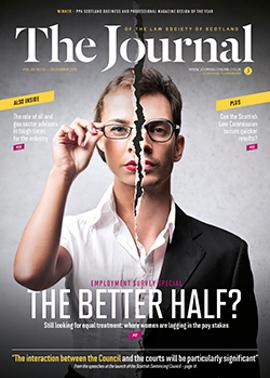Mentoring: the neighbour principle

A mentor empowers a person to see a possible future and believe they can achieve it. (Shawn Hitchcock)
Practising law is a hard business, and rarely do the biggest challenges lie in the technicalities. In-house lawyers strive to be central to the organisation, not a specialist niche – or worse, the business prevention department. In private practice, success is often defined as much by commercial as legal skills. Expertise is a ticket to the game, but no guarantee of winning. For that you need to be able to strategise, lead, manage, sell, navigate office politics, work absurd hours and (I almost forgot) find time for a private life.
Of course, there is an upside: intellectual stimulation, the satisfaction of making a difference, colleagues (did I say they were a plus?), income and status. But none of it comes easily. It is no surprise that so many surveys reveal high levels of stress and unhappiness. I went through every emotion during 35 years in practice. There were plenty of good times, but there was more than one night when I could cheerfully have doused the place in petrol, lit a match and driven home without a backward glance. I am far from unique.
The best antidote to these stresses is support and collaboration. Like motherhood, apple pie and Adele, everyone is in favour, but gaps between aspiration and reality are everywhere. There is so much focus on individual performance and specialised practice areas, but this is the opposite of what is needed – a culture that rewards teamwork, encourages mentoring, and allows people the freedom in a safe, confidential space to admit to problems or vulnerability.
The season of peace and goodwill is a pretty good time to reflect on our interdependence. Actually loving all our neighbours may be a stretch, but supporting them and having them support us is not just morally right, it is good business. Firms with mentoring schemes in place typically deliver superior client service and have an edge when it comes to attracting the best talent.
Mentoring in essence
“Mentoring” and “coaching” are often used interchangeably, but there are important differences. Coaching is task-based and directed at improving specific skills. Generally, it is short term. Mentoring on the other hand seeks to develop people so that they are not only able to do their current job better, but equipped to progress their careers and live fulfilling lives. It is based not on tasks, but relationships. It is long term. Most importantly, it focuses not just on work, but on the whole person. It recognises that along with technical skills, people bring the personal history which has forged their outlook, prejudices, fears and ambitions, all of which affect profoundly their ability to perform.
Mentors should never have direct managerial authority over their subjects. The essence of the relationship is that one is mentored by an independent, interested person, who can be trusted to respect confidentiality and give skilled, insightful guidance. Notice that this is a serviceable description of a solicitor/client relationship, so it is a little ironic that while we extol these benefits, we can be slow to take advantage of them ourselves.
The key to successful mentoring is to embed it in the structures and spirit of the firm. It should not be like a bottle of pills, used only when there is a problem, or the turkey, kept for special occasions, but a normal part of everyone’s development. It has value wherever one is on the ladder, no more so than at the top, which can be a difficult and lonely place.
It often occurred to me as the firm grew that there would be nothing better than access to independent, confidential wisdom. Now that I consult with a wide variety of firms, I find a constant demand for it, and it is no coincidence that the highest demand comes from the most successful people. Without doubt, it is some of the most satisfying work I do. But mentoring need not be supplied externally, and there are many examples of excellent schemes resourced entirely in-house.
Formal training for mentors helps, but is not essential. What matters is to have empathy, a good set of ground rules and a long-term commitment. Mentors are mostly senior people, but not always. The digital revolution has caused such consternation in the grey community that “reverse mentoring” is now fashionable, where younger, cooler colleagues strain every tattooed sinew to drag them into the 21st century.
In closing, can I thank Mr Editor and all my readers for the wonderful support the two of you have given me this year. The feedback and suggestions have been tremendously appreciated. I wish everyone a joyful festive season and a healthy, prosperous 2016.
In this issue
- Dealing with mistakes as a trainee solicitor
- Landlords: police or prisoners?
- The evolving duty of trust and confidence
- The nobile officium: still relevant, still useful
- Reading for pleasure
- Opinion: Davinia Cowden
- Book reviews
- Profile
- President's column
- One year on
- People on the move
- Equal with whom?
- Sentences by the book
- Weathering the storm
- Law reform: securing a result
- There ought to be a law
- Reform in the air
- Taking a stand against slavery
- Where the bill falls short
- IP disputes and the corporate veil
- Bar reports no more
- Dutee Chand – a marathon for a sprinter
- Scottish Solicitors Discipline Tribunal
- Advance notices and letters of obligation
- Another school round for YFIL
- Aileen takes up key membership role
- Criminal practice note alert
- Law reform roundup
- My time for nothing
- Mentoring: the neighbour principle
- Magic bullets
- Recognising paralegals
- Commission on a mission
- Ask Ash
- You had your say






